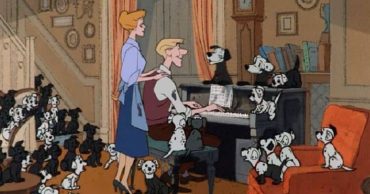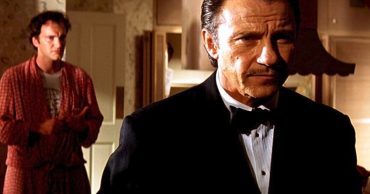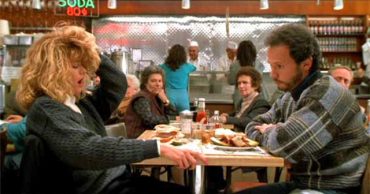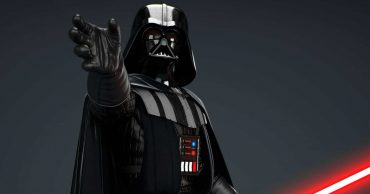What are the greatest films of the 21st century? Without a doubt a question that has kicked off many debates in coffee shops, film schools, and Hollywood boardrooms. Recently, The New York Times decided to tackle this immense task head-on, reaching out to around 500 of the industry’s most respected artists to create a definitive list of the 100 best films released since January 1, 2000.
This highly ambitious project brought together an impressive register of talent, including Oscar-winning directors like Pedro Almodóvar, Sofia Coppola, Barry Jenkins, and Guillermo del Toro, as well as applauded thespians such as Chiwetel Ejiofor, Mikey Madison, John Turturro, and Julianne Moore. Published in July 2025, the result was both polarizing and comprehensive. Simply put, a mesmerizing journey through modern movie magic that reflects the diverse tastes and perspectives of cinema’s creative elite. So, let’s delve into the top 10 movies from their industry expert list to dissect what Tinsel Town’s finest consider to be the cream of the cinematic crop.
10. The Social Network (2010)
When picking his choices for the greatest films of the 21st century, Simu Liu (Barbie) told The New York Times: “I’d say watch ‘The Social Network’ if you want to see what a perfect film looks like.” Quentin Tarantino also agrees, calling The Social Network the second-best best film of 2010 after Toy Story 3.
Fincher’s Oscar-winning modern classic kickstarted a wave of tech movies, but to many, this well-paced biopic remains the finest to this day. Less biography than evisceration, Fincher’s hypnotically unflattering origin story follows Mark Zuckerberg (Jesse Eisenberg) from a bitter breakup to becoming the world’s loneliest billionaire, compulsively refreshing his own creation. By scoring it like a thriller, Fincher transforms what could have been a mundane telling into something deftly cinematic, effectively turning the birth of Facebook into a tragedy about connection, yet ironically, isolation too.
9. Spirited Away (2002)
“It’s a film for any child who’s lost their parents in a department store or large crowd. It’s that pit in your stomach,” John Turturro said while explaining his vote. Currently #31 on IMDB’s Prestigious Top 250 Movies List, Spirited Away is the anime movie that truly pierced Hollywood’s veil and captivated the world – often called the modern Alice in Wonderland. When ten-year-old Chihiro’s parents are transformed into pigs by a witch, she must navigate a mysterious bathhouse populated by soot sprites, the masked No-Face, and Haku the boy-dragon. Hayao Miyazaki effortlessly weaves his signature themes; environmental destruction, lost innocence, and deceptive creatures, using them to craft a spellbinding adventure that proves animation’s power to create genuine magic.
8. Get Out (2017)
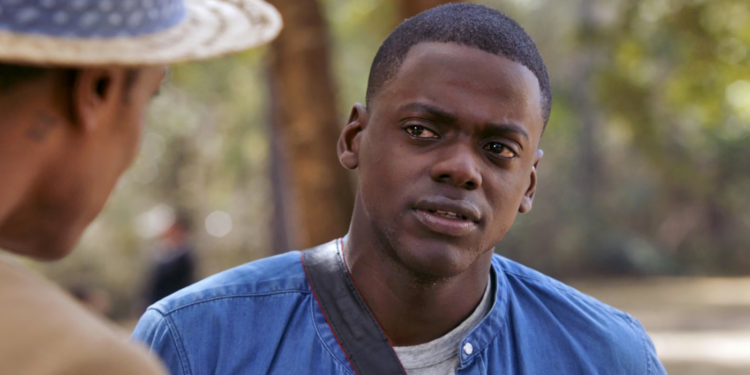
Get Out marked a remarkable shift in Hollywood dynamics as it saw famed comedy sketch actor Jordan Peele transform into a horror maestro, something that was widely accepted with open arms. In Hollywood, this is a rare achievement, as we have seen with the likes of Adam Sandler having his dramatic efforts snubbed time and time again. However, Peele’s horror movie is carried by a heavy and constant undertone of social commentary, making his film not only a terrifying thrill-ride, but also a daunting look at a world that is often explored too carefully to be impactful. Get Out was nominated for four Oscars in 2018, including Best Motion Picture of the Year. While it didn’t take home the top prize, Peele won in the Best Original Screenplay category.
7. Eternal Sunshine of the Spotless Mind (2004)
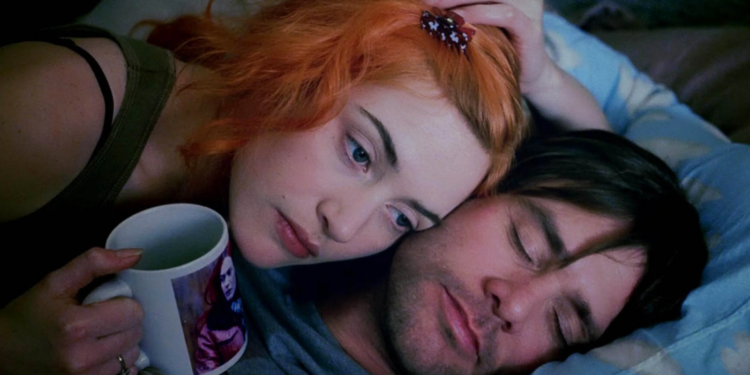
Eternal Sunshine of the Spotless Mind is a film for those who want their minds twisted and their hearts touched at the same time. With its twisting narrative style wrapped around a rather basic but unique premise, what it really delivers is a romantic comedy that’s been given a fever dream treatment. Directed by Michel Gondry from a screenplay by Charlie Kaufman, this collaboration was always destined to be wonderfully wacky. However, beneath its surreal exterior lies a film with genuine heart. This dream-like journey ventures far beyond its rom-com predecessors to delve into something much deeper about human nature and memory. Although the movie deservedly won the Oscar for Best Original Screenplay, many consider the lack of recognition for Jim Carrey‘s nuanced rendition one of the Academy’s biggest-ever snubs.
6. No Country for Old Men (2007)
No Country for Old Men is one of the finest examples of a basic story made utterly enthralling with its deeply rich character studies. As a slow-burn crime drama, the pacing is uplifted by subtle tension as one man pursues another across the desert landscape of West Texas in 1980. Primetime Emmy winner Brian Cox said: “It’s the Coen brothers at their best. They’re sort of daring and they’re pushing the envelope all the time with the amazing character played by Javier Bardem.”
This Oscar-winning classic strips away Hollywood convention in a way that is rarely seen, revealing something raw and unforgiving beneath. Anton Chigurh (played by Javier Bardem) doesn’t just kill – he philosophizes about fate while wielding a cattle gun, turning murder into twisted theology. When No country for Old Men hit movie theaters in 2007, it was clear that the Coens fully understand that true terror and menace lies not in jump scares but in the inexorable march of consequences.
5. Moonlight (2016)
Moonlight may be most famous for its part in one of the Academy Awards’ most iconic mishaps (the wrong name was called out for Best Picture), but to those who voted for The New York Times, it is widely considered to be one of the greatest films of the 21st century. Actress Danielle Deadwyler said “I just think the tenderness of Black boyhood and Black manhood was really beautiful to convey. Barry captured the quietude, solitude even, when in an intimate setting. Blue is such a warm color; he captured that visually as well as in the heart space.”
With A24’s Moonlight, Barry Jenkins crafted something revolutionary: a film that whispers where others shout. Through three chapters of Chiron’s life, the audience gets the chance to witness vulnerability as strength, not weakness. The camera moves like a prayer, intimate and reverent, finding poetry in housing projects and heartbreak in school hallways. The finished result showcases that Jenkins understands that identity isn’t a destination but a journey – messy, painful, but utterly beautiful.
4. In the Mood for Love (2000)
From visionary director Wong Kar-wai, In the Mood for Love serves up a simple but emotionally charged tale that explores themes of love, loss, and longing within the constraints of societal norms in 1960s Hong Kong. The film follows two neighbors, Mrs. Chan and Mr. Chow, whose spouses are having an affair, leading them to contemplate a romance of their own while grappling with suppressed desires and unspoken feelings. It is one of the most-renowned modern day love story tragedies, echoing the pain and anguish of many Shakespeare tales. When picking this as one of her top 10 for the New York Times list, Sofia Coppola said: “It really blew my mind that you could make films in that way, as a poetic medium that doesn’t have to spell everything out. It felt like something I hadn’t seen before and it was really inspiring to make things that were more impressionistic.”
3. There Will Be Blood (2007)
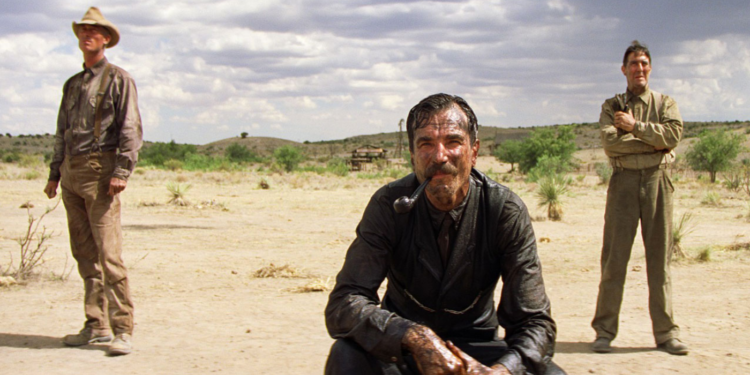
There Will Be Blood could easily be described as a dark tale about greed amongst dangerous ambition, as well as the destructive nature of capitalism in the early 20th century oil industry. However, the film’s depth really exists within its plethora of complex characters, with Daniel Day-Lewis‘ tour-de-force performance being a standout, and a masterclass in nuance. Following oil prospector Daniel Plainview (Day-Lewis) as he manipulates an entire California town to access their underground reserves, the narrative becomes a study in how power corrupts absolutely. His adopted son H.W. and rival preacher Eli Sunday (Paul Dano) become pawns in Plainview’s escalating game of domination, where every relationship serves his insatiable hunger for wealth and control.
The beauty of this film is that not only does the narrative take directions that make you gasp in disbelief, Paul Thomas Anderson‘s soaring camerawork adds tension to scenes that may have played out melodramatic had another director helmed the picture. Anderson effortlessly transforms the American West into a psychological battlefield, where Jonny Greenwood‘s discordant score becomes the sound of a man’s soul disintegrating.
2. Mulholland Drive (2001)
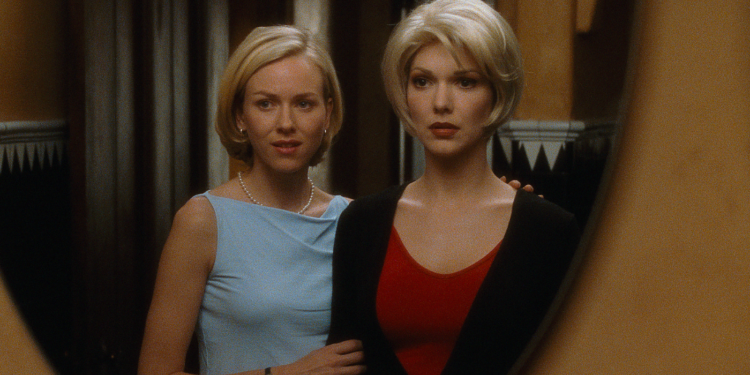
Just when many thought David Lynch was settling into television after the huge triumph of Twin Peaks, he shocked Hollywood with Mulholland Drive, a mind-bending film that defies genre boundaries, transcending neo-noir conventions, gothic horror, psychological terror. This perverse fairy tale follows the downward spiral of Betty, a bright-eyed young actress played by Naomi Watts in a career-defining performance, who stumbles into a labyrinthine and perilous mystery after arriving in Los Angeles.
Despite being one of Lynch’s darkest and scariest tales, Mulholland Drive is also one of his most emotionally heartbreaking. It is full of doubles, illusions, and unnerving turns. Truly one of Lynch’s most unsettling and, as he would say himself, autobiographical films, it also acts as a gloomy mirror of Hollywood itself, a place where dreams may easily turn into nightmares. Although this film didn’t sweep up any awards, it has found it’s way into many “best movies ever” conversations, ultimately landing the number 2 spot on The New York Times list.
1. Parasite (2019)
As the winner of four Oscars in 2020, including Best International Feature Film, and the coveted Best Motion Picture of the Year, many critics would hail Parasite as the best movie of 2019. While this is of course subjective, it now has the title of the greatest movie of the 21st century thanks to The New York Times. The compelling and thought-provoking story of class inequality in Bong Joon Ho‘s film seamlessly highlights the divide between the haves and have-nots.
Centring on an impoverished family that cunningly infiltrates an affluent home, the chain of events that follow are both disturbing and darkly humorous, showcasing Bong’s sheer mastery of genre-blending, fluidly navigating between scathing satire and ruthless societal criticism. Ultimately, Parasite succeeds because it refuses easy answers, instead revealing how economic systems create monsters of both the exploited and exploiters, leaving audiences to confront uncomfortable truths about complicity, survival, and the price of dreaming beyond your station.
Read Next: Director Gus Van Sant’s 10 Best Films, According to Rotten Tomatoes
 Follow Us
Follow Us

